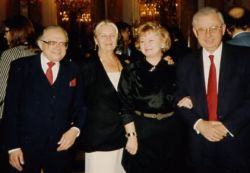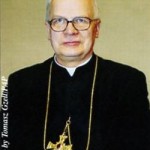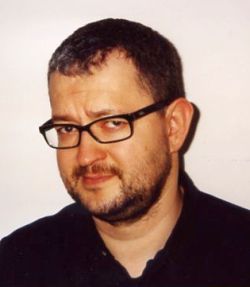20 kwiecień 2008
From Pius X to the "Passion"
Mel Gibson does not in fact share the latter point of view, but in his „Passion” used one trick which is sharply attacked as an expression of anti-Semitism by a considerable number of Jews.
ZYGMUNT BRONIAREK
I ran across the lobbing surrounding Mel Gibson’s “The Passion of the Christ” in the summer of 1994 at a time when no one had even predicted its release. In the meantime my acquaintance, Wiesław Wil
k, director of the Forum Hotel in Warsaw, recalled that John Paul II is actually the first “wholly Polish” Pope in history because he had both a Polish father and mother but that earlier there was a Pope with a Polish father whose mother was Italian. That Pope was Pius X, whose pontificate lasted from August 4, 1903 to August 20, 1914. Research shows that Leon XIII, before his death July 20, 1903, informally appointed his secretary of state, Cardinal Mariano Rampolli del Tindaro, as his successor. After the death of Leon XIII, this caused a great deal of lobbying among members of the conclave in favor of fulfilling his will. It would have worked for sure if not for the opposition of the Austro-Hungarian Emperor, Franz Jozef.
Franz Jozef was an opponent of Rampolli for two reasons. First and foremost because Rampolli’s politics were anti-Austrian and because he was a mason (!). Secondly, his dislike was personal. Franz Jozef’s son, the archduke Rudolf, killed his lover the Baroness Maria Vetsera – WITH HER CONSENT – and himself in 1899 because he was already married and could not marry her. Rampolli fought with the emperor over conceding Rudolf a proper Catholic burial.
For these reasons, Franz Josef decided to use the veto against the conclave. As the Apostolic Monarch (one of his titles), he had such a right. Unable to voice the veto himself, the emperor delegated the task to the archbishop of Cracow, Cardinal Jan Puzyna (Cracow was “Austrian” at that time, of course). When it turned out during the conclave that Rampolli might be chosen, Puzyna interjected his veto. A new series of voting began, as a result of which the cardinal and patriarch of Venice, Giuseppe Sarto, who later chose the name Pius X, was selected as Pope.
Sarto was the son of Jan Krawiec from Wielkopolska, who ended up in Riese in Northern Italy in his search for “bread.” There his translated his first and last name, changing “Jan Krawiec” to “Giovanni Sarto”, because “sarto” meant tailor in Italian. He became a postman and married an Italian seamstress. One of their sons, Giuseppe, born in 1835, entered the priesthood and made a fantastic career in the Church, which eventually bore fruit in his election to the papacy.
He was a very conservative Pope and was canonized by Pius XII in 1954. His memory caused some unusual events. French bishop (later archbishop) Marcel Lefebvre, began his activities – both heretical and lobbying in nature – after the Second Vatican Council (1962-65). He came out against nearly all of the council’s resolutions and particularly against the removal of guilt for the crucifixion of Christ from the Jews and the conduct of mass in national languages instead of Latin. Lefebvre established the Association of Holy Pius X for the propagation of his faith. John Paul II tried to lead him on the right path but without success. When in 1988 Lefebvre independently nominated four bishops “of his own” the Pope excommunicated him. Lefebvre died in 1991.
The teachings of Lefebvre were taken up by the father of Mel Gibson, Hutton, who created his own church on the property of his son in California under the name “Holy Family.” It professes the same principles as Lefebvre (actually acknowledged as a radical anti-Semite) and, moreover, does not accept the “post-Vatican” selection of Popes Paul VI, John Paul I and John Paul II as legally binding. Mel Gibson does not in fact share the latter point of view, but in his “Passion” used one trick which is sharply attacked as an expression of anti-Semitism by a considerable number of Jews. That element is the introduction of Pilot as a mild ruler who wants to save Jesus at any cost and the highest Jewish priest, Caiaphas, as the one who ruthlessly pursues Christ’s crucifixion. The contrast between the image of Pilot and Caiaphas in Gibson’s film is paralyzing. Many Jewish organizations lobbied and propagated in March and April of this year for the idea that Gibson’s “Passion” would strengthen anti-Semitism around the world in an extremely vivid and MASSIVE way.
Zygmunt Broniarek

























CATHOLIC CHURCH
Continuation and breakthrough
A little over 90% Poles declare themselves to be Catholic. However, 5% of believers do not attend church at all. 53,9% of believers declared they were living in accordance with the commandments of the Church. więcej...